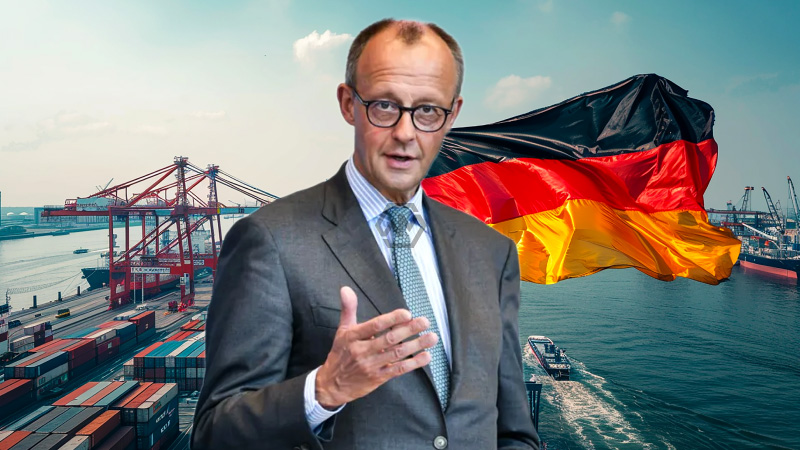- Growth forecast for 2025 slashed to 0.1% amid economic uncertainty
- Trump-era tariffs could double impact on German GDP
- New government under Friedrich Merz pledges economic renewal
Germany’s economic momentum is faltering, with a revised 2025 growth forecast of just 0.1%. This is down sharply from the 0.8% projected last September.
One of the most pressing external threats comes from the U.S., where potential tariff hikes on key German exports like vehicles and steel could further hinder growth.
Germany’s Growth Under Strain: Merz Era Begins Amid Global Trade Friction
The downgrade in Germany’s growth forecast marks another setback for an economy already grappling with sluggish post-pandemic recovery. Inflation, tighter monetary policy, and supply chain disruptions have collectively slowed domestic momentum, leaving minimal room for expansion this year.
Much of Germany’s economic performance hinges on its export sector, which is vulnerable to shifts in global trade policy. The Trump administration’s aggressive tariff strategy, including duties on steel, aluminum, and automobiles, is expected to have a noticeable drag on German output.
The new coalition government led by Friedrich Merz comes at a critical time. After months of political stagnation, Merz and his allies have introduced a plan aimed at boosting investment, modernizing infrastructure, and strengthening energy security. Whether these efforts will offset external shocks remains to be seen.
The coalition also faces the task of rebuilding economic resilience while preserving Germany’s global competitiveness. Diplomatic efforts to ease trade tensions with the U.S. may become a key priority as Berlin seeks to stabilize its export-driven economy.
Germany stands at a crossroads, where domestic reform and global diplomacy must work hand in hand to steer the country toward sustainable growth in an uncertain world.
“The economy is a delicate machine—one disruption can echo across continents.” — This reflects how U.S. trade policy can ripple through economies like Germany’s, affecting global stability.



